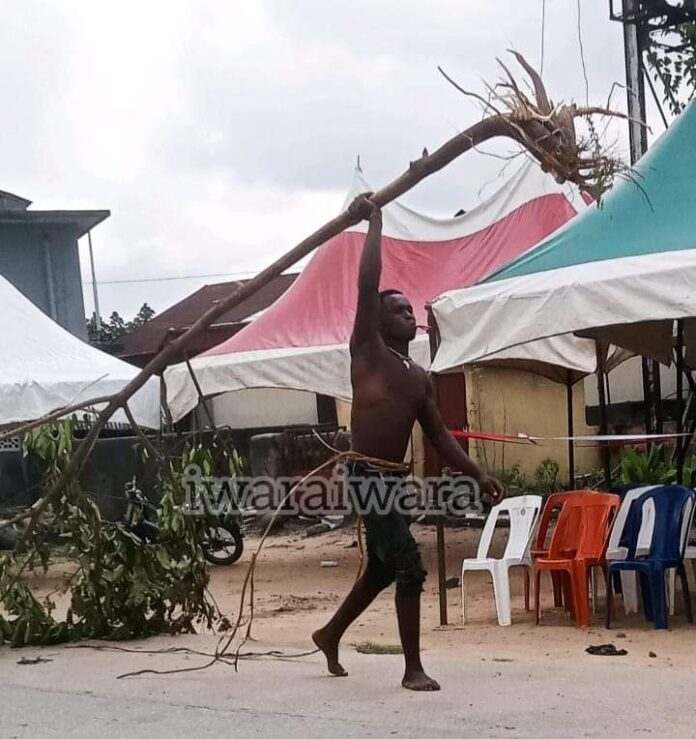The vibrant tapestry of cultures that adorns Nigeria’s landscape is a testament to the nation’s diversity and richness. Among these cultural gems is the Leboku New Yam Festival of the Ugep people, a celebration that encapsulates tradition, unity, and physical prowess. As the echoes of this year’s festivities reverberate, it is crucial to delve into the heartwarming facets of the Loboh tradition that have left an indelible mark on the cultural landscape.
Opinion offers a glimpse into the multifaceted nature of Loboh. It is more than a mere cultural display; it’s an embodiment of strength, both physical and communal. As Iwara U. Iwara rightly pointed out, Loboh showcases the vigor and vitality of young men. This cultural phenomenon serves as a reminder of the robustness of the youth, as they engage in activities that demonstrate their physical strength and prowess. The uprooting of trees with bare hands is not just a display of brawn but a symbolic act that mirrors the determination to overcome challenges and barriers.
However, Loboh transcends individual strength; it is a testament to the unity and shared bonds of the Ugep people. The notes highlight the tradition of young men parading the streets accompanied by beautiful women wearing bangles. This act of togetherness symbolizes the interconnectedness of the community and their ability to celebrate each other’s achievements and joys. Loboh not only underscores the appreciation of a successful Leboku new yam festival but also reinforces the idea of shared celebrations, where the accomplishments of one become the triumph of all.
The Leboku New Yam Festival has become an occasion that harmoniously blends tradition, celebration, and cultural pride. Loboh, as a highlight of this festival, encapsulates the essence of young men’s strength and the unity that binds the Ugep community. It also serves as an invitation for outsiders to witness and appreciate the richness of Nigerian culture. As the festival becomes part of history for this year, let it be a reminder of the strength in unity and the beauty in diversity that continue to shape our society.
In celebrating Loboh, we celebrate the essence of culture, unity, and the timeless connection between generations past and those yet to come. The festival stands as a living testament to the fact that traditions are not mere relics of the past but living expressions of a people’s identity, strength, and unity.
Efio-Ita Nyok writes from the ancient port city of Calabar, Nigeria









